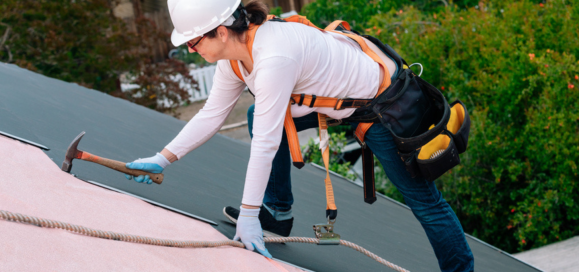Building a home from scratch can be an exciting and rewarding experience. Unique floorplan: Check. Custom finishes: Of course! Everything tailored to your needs and preferences: A resounding yes.
While the process may seem daunting if you’ve never embarked on this type of project before, anyone can build their dream home with the right mindset and approach. If you’re unsure how to get started, here are a few key steps:
Table of Contents
Step 1: Plan and DesignStep 2: Secure FinancingStep 3: Obtain PermitsStep 4: Clear the LandStep 5: Lay the FoundationStep 6: Build the FrameStep 7: Install Plumbing and Electrical SystemsStep 8: Install Insulation and DrywallStep 9: Finish Interior and ExteriorImpact on Your TaxesStep 1: Plan and Design
The first order of business is to plan and design your space, including the size and layout of your home and the materials and finishes you want to use. You can work with an architect or designer to create a custom plan or use online tools and resources to create your space.
When designing your home, keep your lifestyle and needs top of mind. Do you need a large kitchen for entertaining? Do you want a home office or gym? Do you need extra bedrooms for guests or children? All important questions to answer!
Step 2: Secure Financing
Once you have a plan, secure your project’s financing. For example, the funding may involve getting a mortgage or loan from a bank or other financial institution. Shopping around and comparing rates is important to find the best option for your needs.
Step 3: Obtain Permits
Before you can start building, you’ll need to obtain the necessary permits from your local government, for example, building permits, zoning permits, and other approvals. It’s essential to research the requirements in your area and ensure that you have all the necessary paperwork in order before starting construction.
Step 4: Clear the Land
Once you have all the necessary permits, it’s time to clear the land at the site of your future residence. Removing trees, rocks, and other obstacles from the site could be on the to-do list. Another possibility is leveling the land and preparing it for construction.
Step 5: Lay the Foundation
Laying the foundation involves pouring concrete or laying blocks to create a solid base for your structure. It’s crucial to ensure that the foundation is level and adequately reinforced to support the weight of your home.
Step 6: Build the Frame
With the foundation in place, next up is constructing walls, floors, and roofs using wood or other materials. You may need to hire contractors or enlist the help of friends and family to complete this step!
Step 7: Install Plumbing and Electrical Systems
Installing plumbing and electrical systems comes after the frame is complete, including running pipes and wires throughout your home to provide water, electricity, and other essential services. Don’t do this yourself: Hire licensed professionals to ensure everything is safe and up to code.
Step 8: Install Insulation and Drywall
The second to last step is installing insulation and drywall. Why? It helps to regulate temperature and soundproof your home. You may also need to install windows and doors at this stage.
Step 9: Finish Interior and Exterior
Painting walls, installing flooring, and adding fixtures and finishes such as cabinets, countertops, and lighting will conclude your custom build! You may also need landscaping and outdoor features like a patio or deck.
Impact on Your Taxes
Building a home from scratch can come with additional tax implications. Depending on where you live, you may be subject to property taxes, construction taxes, and other fees. Researching the tax laws in your area and budgeting is essential. Check with your state to see if you are eligible for tax credits or deductions for energy-efficient features or other sustainable building practices. It’s a good idea to consult with a tax professional to ensure you take advantage of all available tax benefits and avoid any potential penalties.
If you itemize your deductions, you can deduct the interest paid that year for your mortgages. Generally, you can deduct the points you paid for the purchase of your primary residence.
If you purchased a home this year, you should receive a Form 1098 from your lender that includes the amount of mortgage interest you paid, points or mortgage insurance premiums you may have paid – all of which may be tax deductible.
Building a home from scratch can be a challenging but rewarding experience. With careful planning, hard work, and a DIY mindset, anyone can create their dream home. Whether you’re looking for a cozy cottage or a modern mansion, building from scratch allows you to create a space that is uniquely yours. So why not take the plunge and start building today?
If you build a home and have questions about your taxes, do not worry about the above rules. Meet with a TurboTax Full Service expert who can prepare, sign and file your taxes so you can be 100% confident your taxes are done right. Start TurboTax Live Full Service today, in English or Spanish, and get your taxes done and off your mind.

